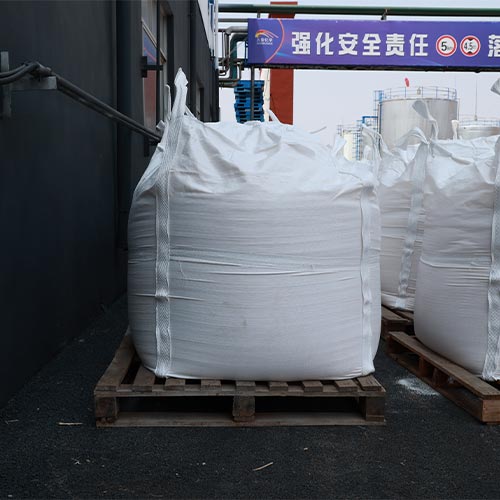Neopentyl Glycol Dicaprylate is a versatile chemical compound that has significant impacts across various industries. From skincare to industrial applications, this compound offers numerous benefits due to its unique properties. In this article, we will explore seven key influences of Neopentyl Glycol Dicaprylate and its widespread use in different fields.
Table of Contents
- Introduction: Neopentyl Glycol Dicaprylate Overview
- Impact 1: Skin Hydration and Moisturization
- Impact 2: Enhanced Sun Protection
- Impact 3: Stability and Shelf Life Extension
- Impact 4: Solvent and Carrier Properties
- Impact 5: Eco-Friendly Formulations
- Impact 6: Lubricant and Plasticizer Applications
- Impact 7: Adhesive and Coating Formulations
- Conclusion
- FAQs
Introduction: Neopentyl Glycol Dicaprylate Overview

Neopentyl Glycol Dicaprylate, commonly referred to as NGD, is a versatile chemical compound with a wide range of applications. Derived from neopentyl glycol and dicaprylic acid, NGD belongs to the ester family and possesses unique properties that make it highly valuable in various industries.
NGD is a clear, colorless liquid characterized by its low viscosity, which allows for easy incorporation into different formulations. Its exceptional versatility and compatibility with other ingredients make it a sought-after component in numerous products.
This article aims to provide a comprehensive overview of Neopentyl Glycol Dicaprylate, exploring its uses and the significant impacts it has across different fields. By delving into the seven major influences of NGD, we will uncover the remarkable benefits this compound offers and why it has become a key ingredient in various industries. From skincare to industrial applications, Neopentyl Glycol Dicaprylate continues to leave a lasting impression with its remarkable properties and versatile nature.
Skin Hydration and Moisturization
One of the significant influences of Neopentyl Glycol Dicaprylate lies in its remarkable ability to promote skin hydration and moisturization. NGD’s unique properties make it a highly sought-after ingredient in skincare products such as moisturizers, lotions, and creams.
When applied topically, Neopentyl Glycol Dicaprylate acts as an exceptional emollient, forming a protective barrier on the skin’s surface. This barrier helps to prevent moisture loss and enhances the skin’s ability to retain hydration. As a result, the skin feels smoother, softer, and more supple.
Unlike some other moisturizing ingredients, NGD is non-greasy and quickly absorbed by the skin. This makes it an ideal choice for individuals with various skin types, including those with oily or combination skin. Neopentyl Glycol Dicaprylate’s lightweight texture allows for easy application and ensures that the skin does not feel weighed down or greasy.
Furthermore, NGD’s moisturizing effects are long-lasting, providing continuous hydration throughout the day. This makes it particularly beneficial for individuals with dry or dehydrated skin, as it helps replenish and maintain optimal moisture levels.
In addition to its hydrating properties, Neopentyl Glycol Dicaprylate also contributes to the overall health and appearance of the skin. By nourishing and moisturizing the skin, it helps to improve its elasticity, reduce the appearance of fine lines and wrinkles, and promote a youthful complexion.
Enhanced Sun Protection
Neopentyl Glycol Dicaprylate also has a significant influence in the realm of sun protection. This compound offers enhanced sun protection benefits when incorporated into sunscreen formulations.
One of the key advantages of Neopentyl Glycol Dicaprylate is its ability to increase the effectiveness and photostability of sunscreens. When UV filters are combined with NGD, it acts as an excellent solvent, ensuring their even distribution on the skin. This uniform distribution enhances the coverage and efficacy of the sunscreen, providing reliable protection against harmful UV rays.
NGD’s solubility also helps in preventing the formation of clumps or uneven patches of sunscreen on the skin, ensuring a smooth and consistent application. This plays a crucial role in ensuring that every exposed area receives adequate sun protection.
Additionally, Neopentyl Glycol Dicaprylate aids in the longevity of sun protection. It contributes to the stability of UV filters, preventing their degradation when exposed to sunlight. This helps to maintain the effectiveness of the sunscreen over an extended period, allowing for longer-lasting protection.
Stability and Shelf Life Extension
Neopentyl Glycol Dicaprylate plays a crucial role in enhancing the stability and extending the shelf life of various cosmetic and personal care products. This impact is particularly valuable in ensuring that products remain effective and safe for an extended period.
One of the primary reasons for the enhanced stability is NGD’s low volatility. This characteristic prevents the evaporation of volatile ingredients, ensuring that the formulation maintains its integrity over time. By minimizing ingredient loss, Neopentyl Glycol Dicaprylate helps preserve the product’s efficacy and performance.
Moreover, NGD exhibits excellent resistance to oxidation. Oxidation can lead to the degradation of active ingredients and the formation of harmful by-products. By incorporating Neopentyl Glycol Dicaprylate into formulations, manufacturers can protect their products from oxidative damage, ensuring that they remain potent and safe for consumers.
The stability provided by NGD extends to a wide range of cosmetic and personal care products, including creams, lotions, serums, and makeup formulations. This allows manufacturers to create products that maintain their quality, consistency, and performance throughout their shelf life.
In addition to stability, Neopentyl Glycol Dicaprylate contributes to shelf life extension. By reducing ingredient degradation, NGD helps preserve the overall formulation, preventing the growth of microorganisms and maintaining product safety. This is particularly important in products that are susceptible to spoilage or contamination, ensuring that consumers can use them confidently.
Furthermore, the extended shelf life of products containing Neopentyl Glycol Dicaprylate reduces waste and contributes to sustainable practices. It allows for longer product usage and minimizes the need for frequent repurchasing, benefiting both consumers and the environment.
Solvent and Carrier Properties
Neopentyl Glycol Dicaprylate exhibits excellent solvent and carrier properties, making it a versatile ingredient in cosmetic and personal care formulations. Its unique characteristics as a solvent and carrier contribute to the overall performance and functionality of various products.
As a solvent, Neopentyl Glycol Dicaprylate has the ability to dissolve both hydrophobic and hydrophilic substances. This versatility allows for the formulation of products that incorporate a wide range of ingredients, including oils, waxes, pigments, and active compounds. NGD’s solvent properties ensure the even distribution and dispersion of these ingredients, resulting in a homogeneous and stable formulation.
Moreover, NGD’s low viscosity contributes to its effectiveness as a carrier. Its lightweight texture allows for easy incorporation and spreading of other ingredients within a formulation. This ensures that the desired actives or additives are evenly delivered to the skin or hair during application, enhancing their efficacy.
Neopentyl Glycol Dicaprylate’s solvent and carrier properties are particularly beneficial in the formulation of skincare products, such as serums and lotions. It helps in delivering key ingredients, such as vitamins, antioxidants, and moisturizers, to the desired target areas effectively. The ability to dissolve and carry these beneficial components ensures that they penetrate the skin’s surface, maximizing their potential benefits.
Furthermore, NGD’s solvent and carrier properties contribute to the sensory experience of the product. Its non-greasy and lightweight nature allows for quick absorption into the skin without leaving a heavy or sticky residue. This enhances the overall application experience, providing a smooth and comfortable feel.
Eco-Friendly Formulations

The demand for eco-friendly and sustainable products has witnessed a significant rise in recent years, and Neopentyl Glycol Dicaprylate aligns perfectly with this trend. This compound offers advantages for formulating environmentally conscious products, making it a preferred choice for manufacturers committed to sustainability.
One of the key aspects that contribute to Neopentyl Glycol Dicaprylate’s eco-friendliness is its origin. NGD is derived from renewable resources, which reduces reliance on non-renewable fossil fuels. This renewable sourcing helps minimize the environmental impact associated with the production and use of NGD.
Additionally, Neopentyl Glycol Dicaprylate exhibits biodegradability. After use, it breaks down naturally over time, reducing its impact on the environment. This characteristic is particularly significant in applications where the products come into contact with water systems, as NGD’s biodegradability ensures minimal ecological harm.
By incorporating NGD into formulations, manufacturers can offer eco-friendly alternatives to traditional products that rely on petroleum-based ingredients. This shift toward renewable resources promotes sustainability and reduces the carbon footprint associated with the production and use of cosmetics and personal care items.
Furthermore, Neopentyl Glycol Dicaprylate’s eco-friendly properties extend beyond its sourcing and biodegradability. The compound’s versatility as a solvent and carrier allows for the formulation of concentrated products, reducing the overall volume and packaging required. This contributes to waste reduction and promotes a more sustainable product lifecycle.
Lubricant and Plasticizer Applications
Neopentyl Glycol Dicaprylate demonstrates significant influence as a lubricant and plasticizer, finding applications in various industries where these properties are crucial.
As a lubricant, Neopentyl Glycol Dicaprylate exhibits excellent properties that help reduce friction between surfaces. Its low viscosity allows for smooth and effortless movement, minimizing wear and tear on mechanical components. NGD’s lubricating capabilities make it a valuable ingredient in industries such as automotive, manufacturing, and textiles, where the efficient functioning of machinery and equipment is essential.
Moreover, NGD serves as a plasticizer, enhancing the flexibility and durability of plastic materials. When incorporated into plastic formulations, it improves their ability to withstand bending, stretching, and impact without breaking or cracking. This property is particularly advantageous in industries that rely on flexible plastics, such as packaging, automotive interiors, and consumer goods.
Neopentyl Glycol Dicaprylate’s plasticizing effects contribute to the overall performance of plastic products by improving their processability and end-use properties. It facilitates the molding and shaping of plastics during manufacturing processes, ensuring precise and efficient production. Additionally, NGD enhances the mechanical properties of plastics, including tensile strength, impact resistance, and elongation, making them more versatile and reliable in various applications.
Furthermore, NGD’s lubricating and plasticizing properties offer advantages beyond mechanical applications. In industries such as personal care and cosmetics, Neopentyl Glycol Dicaprylate contributes to the formulation of products like lipsticks, balms, and lotions. It imparts a smooth and glide-on texture, enhancing the application experience and ensuring even coverage on the skin.
Adhesive and Coating Formulations
Neopentyl Glycol Dicaprylate exerts a significant influence on adhesive and coating formulations, offering valuable properties that enhance their performance and versatility.
In adhesive formulations, NGD contributes to the adhesive properties, enabling strong and durable bonding capabilities. It acts as a key ingredient that promotes adhesion between different surfaces, ensuring reliable and long-lasting bonds. Neopentyl Glycol Dicaprylate’s presence helps enhance the overall strength and integrity of the adhesive, making it suitable for a wide range of applications.
Moreover, NGD aids in the formulation of high-quality coatings. It possesses properties that improve the spreadability of coatings, allowing for easy and even application on various surfaces. Neopentyl Glycol Dicaprylate helps create a smooth and uniform coating layer that enhances the appearance and protection of the substrate.
In coating formulations, NGD contributes to the film formation process. It helps the coating material spread evenly and adhere to the surface, resulting in a uniform and cohesive film. This film provides protection against environmental factors such as UV radiation, moisture, and abrasion, extending the lifespan and durability of the coated substrate.
Furthermore, Neopentyl Glycol Dicaprylate enhances the resistance of coatings to cracking and peeling. It improves the flexibility and elasticity of the coating, allowing it to withstand movement, expansion, and contraction without compromising its integrity. This property is particularly important in applications where coatings are exposed to dynamic conditions or temperature variations.
Neopentyl Glycol Dicaprylate’s contributions to adhesive and coating formulations extend to various industries, including construction, automotive, and electronics. Its ability to facilitate strong bonding, improve spreadability, and enhance film formation ensures the efficacy and reliability of adhesive and coating applications.
Conclusion
In conclusion, Neopentyl Glycol Dicaprylate has a significant impact across various industries. Its diverse range of benefits includes promoting skin hydration, enhancing sun protection, improving stability, serving as a solvent and carrier, enabling eco-friendly formulations, facilitating lubrication and plasticization, and contributing to adhesive and coating formulations. The versatility and unique properties of NGD make it a valuable ingredient in numerous applications.
FAQs
- Is Neopentyl Glycol Dicaprylate safe for use in skincare products?
- Yes, Neopentyl Glycol Dicaprylate is considered safe for use in skincare products. It has been extensively tested and approved for cosmetic formulations.
- Can NGD be used in sunscreens for sensitive skin?
- Absolutely! Neopentyl Glycol Dicaprylate is suitable for use in sunscreens formulated for sensitive skin. Its gentle properties make it suitable for a wide range of skin types.
- Does NGD have any environmental advantages?
- Yes, Neopentyl Glycol Dicaprylate offers environmental advantages. It is derived from renewable resources and is biodegradable, making it a sustainable choice for eco-conscious formulations.
- How does NGD contribute to the stability of cosmetic products?
- Neopentyl Glycol Dicaprylate acts as a stabilizing agent in cosmetic products by preventing the degradation of active ingredients, thereby extending the shelf life and maintaining product efficacy.
- Can NGD be used as a plasticizer in food packaging materials?
- No, Neopentyl Glycol Dicaprylate is not recommended for use as a plasticizer in food packaging materials. It is primarily used in non-food contact applications.



